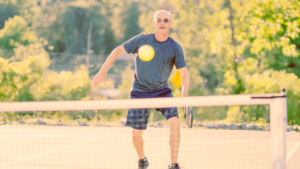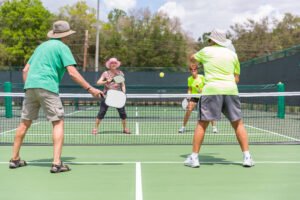Picture this: a bright, sunny day with the sound of laughter echoing through the air, and a gentle breeze rustling the nearby trees. Welcome to the world of pickleball, where camaraderie and competition collide on the courts. But, amidst the excitement and friendly banter, there exists a set of unwritten rules that govern the game. These codes of conduct, known only to the seasoned players, are the secret ingredients that ensure a harmonious and enjoyable experience for all. In this guide, we will explore the unspoken etiquette of pickleball and navigate the blurred lines between good sportsmanship and winning strategy. So, grab your paddle and prepare to delve into the fascinating and invisible web of rules that defines the essence of the game.
Table of Contents
- Getting Started: Understanding the Basics of Pickleball Court Etiquette
- Respecting Your Fellow Players: The Art of Good Sportsmanship in Pickleball
- Navigating the Court: Proper Movement and Communication Etiquette
- Playing Fair: Fair Calls and Dealing with Conflict on the Pickleball Court
- Taking Time to Socialize: The Importance of Friendliness and Inclusivity in Pickleball
- Q&A
- In Conclusion
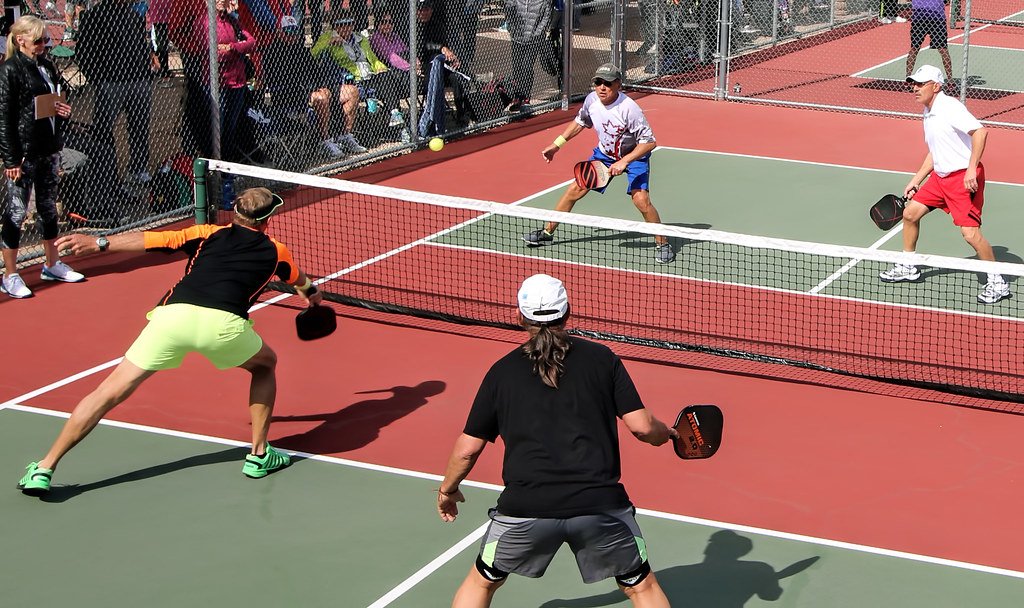
Getting Started: Understanding the Basics of Pickleball Court Etiquette
Once you’ve familiarized yourself with the rules and techniques of pickleball, it’s equally important to understand the basics of court etiquette. Adhering to these unwritten guidelines will not only make for a more enjoyable playing experience but also foster a positive environment for all players.
Respect the court:
- Treat the pickleball court with care. Avoid dragging your paddle, sliding your feet, or engaging in any behavior that may damage the surface.
- Keep the court clean. If you accidentally spill fluids, promptly wipe them up to prevent slips and maintain a safe playing environment.
- Arrive on time and promptly leave the court once your match is finished, allowing others the opportunity to play.
Considerate communication:
- During a game, avoid excessive talking or distracting your opponents. Keep the noise level low, enabling everyone to focus on their play.
- Applaud your opponents’ good shots. Show good sportsmanship and acknowledge their skills, creating a friendly atmosphere on the court.
- If you need to speak with a fellow player, keep your conversation brief and save non-essential chitchat for breaks or after the game.
General conduct:
- Refrain from shouting or using profanity during a match. Maintain a respectful and friendly attitude towards your opponents and teammates.
- Practice good hygiene and wear appropriate attire. Clean shoes and clothing not only contribute to personal comfort but also respect the cleanliness of the court.
By following these simple guidelines, you’ll contribute to a positive atmosphere and an enjoyable pickleball experience for everyone involved. Embrace the spirit of good sportsmanship and savor the camaraderie that pickleball encourages.
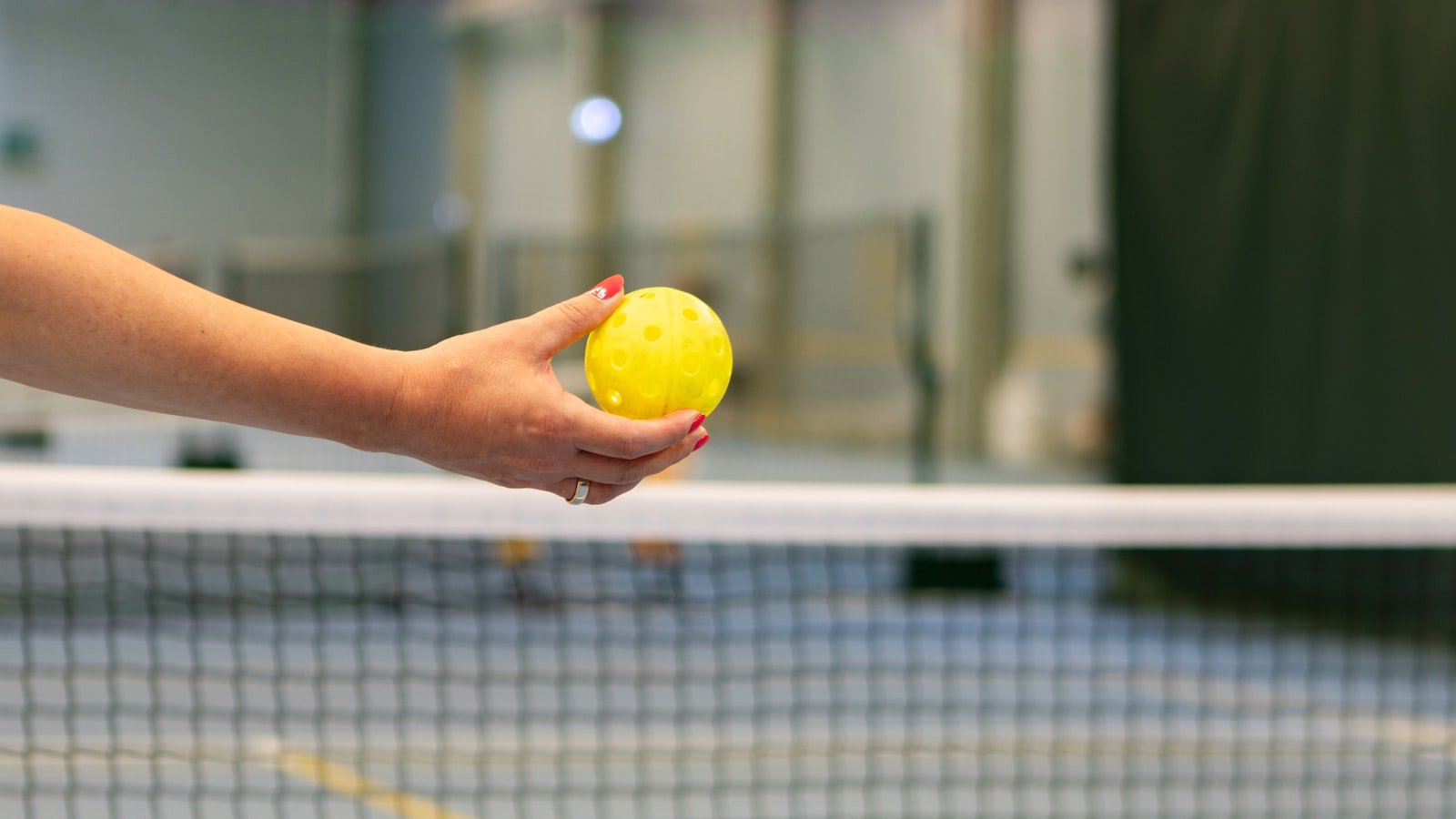
Respecting Your Fellow Players: The Art of Good Sportsmanship in Pickleball
In the world of pickleball, good sportsmanship is a fundamental component that makes the game enjoyable for everyone involved. It goes beyond simply following the rules; it’s about treating your fellow players with courtesy, kindness, and respect. Here are a few key aspects to consider when it comes to practicing good sportsmanship on the pickleball court:
1. Be supportive and encouraging:
One of the beautiful aspects of pickleball is the sense of camaraderie it fosters. Whether you’re playing with friends or strangers, always strive to be supportive and encourage your fellow players. Celebrate their successes, offer a high-five, or even a simple nod of acknowledgment. Remember, everyone is out on the court to have fun and improve their game, so offering words of encouragement can make a significant difference in someone’s experience.
2. Maintain a positive attitude:
Though winning is undoubtedly enjoyable, it’s important to remember that pickleball is ultimately a game. Regardless of the outcome, always maintain a positive attitude. Avoid letting frustration or disappointment show, as it can impact the overall atmosphere on the court. Instead, focus on playing your best and enjoying the challenge. A positive attitude not only makes the game more enjoyable for yourself but also sets an example for others to follow.
3. Respect the rules and the officiating:
Good sportsmanship in pickleball means understanding and abiding by the rules. Play fair, call your own faults, and give your opponents the benefit of the doubt. Additionally, respect the decisions made by the officiating individuals, whether they are referees or simply players taking up the task. Avoid arguing or creating unnecessary conflicts, as it disrupts the flow of the game and undermines the spirit of fair play.
By embracing good sportsmanship, you can create a positive and inclusive environment that makes pickleball a truly enjoyable experience for all players involved. Remember, the art of good sportsmanship in pickleball extends far beyond the boundaries of the court and has the power to strengthen the bonds between players, both on and off the court.
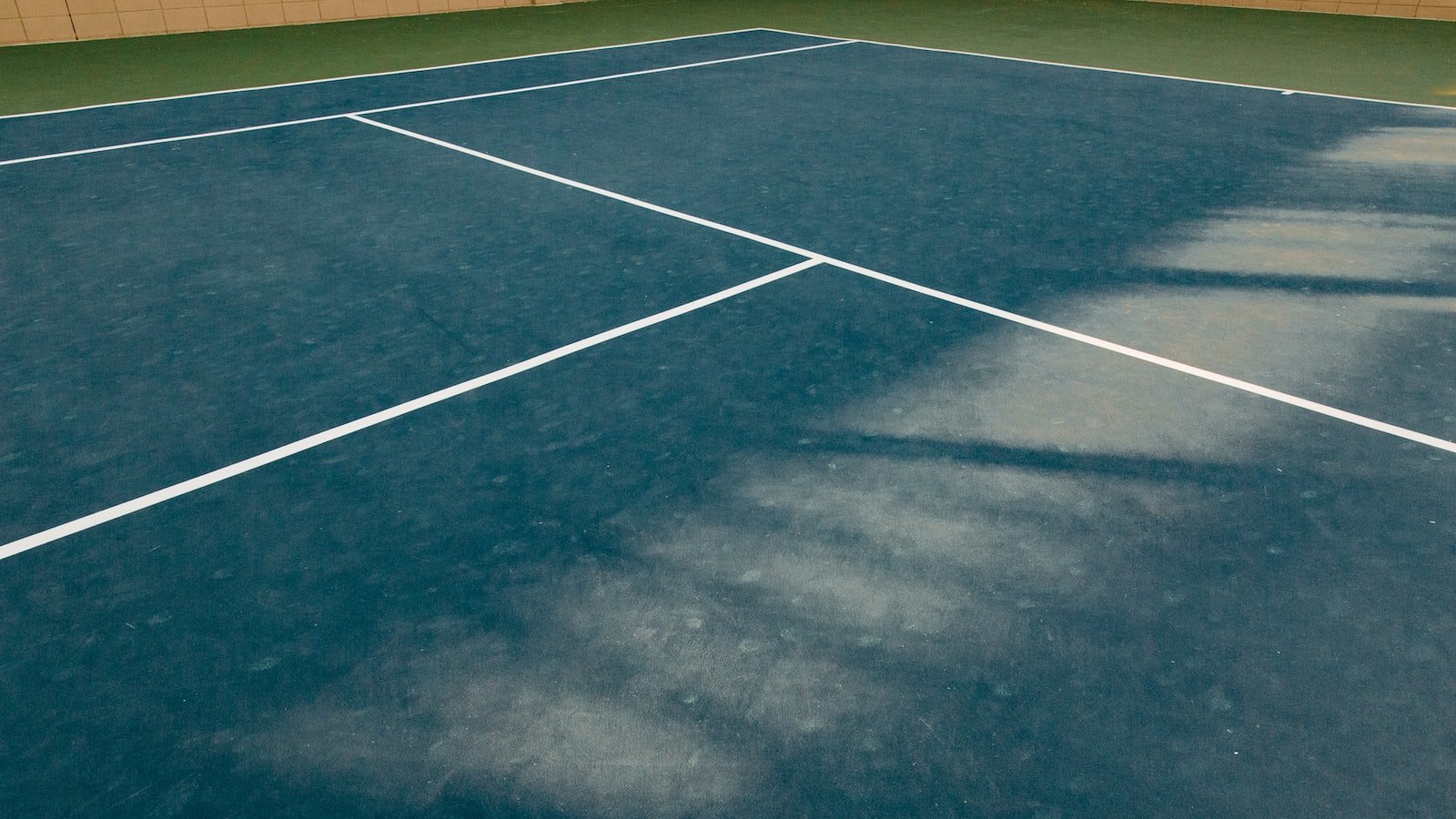
Navigating the Court: Proper Movement and Communication Etiquette
Proper Movement and Communication Etiquette
In the dynamic and fast-paced environment of a court, understanding proper movement and communication etiquette is essential for all participants. Whether you are a lawyer, a witness, or a court reporter, maintaining a sense of professionalism and respect is paramount. Here are some guidelines to help you navigate the court effectively:
- Mind your body language: When moving in and around the courtroom, it’s crucial to be aware of your body language. Maintain an upright posture, walk briskly but not rushed, and avoid unnecessary gestures or fidgeting.
- Be mindful of your surroundings: Always be aware of your surroundings and respect the personal space of others. Do not obstruct pathways or stand in the way of others. If you need to pass by someone during testimony or legal arguments, do so quietly and unobtrusively.
- Use proper communication techniques: Communication in the courtroom must be clear, concise, and respectful. When addressing the judge, use “Your Honor” or “Judge [Last Name]” as appropriate. When speaking to attorneys or witnesses, maintain a professional tone, avoiding sarcasm or personal attacks.
- Listen actively: Active listening is key in the courtroom. Pay close attention to what is being said, whether it’s the judge, opposing counsel, or witnesses. Wait for your turn to speak and never interrupt or speak out of turn.
- Avoid distractions: In order to maintain a focused environment, it’s crucial to minimize distractions. Keep electronic devices on silent mode or turned off, and refrain from engaging in side conversations or any disruptive behavior.
By adhering to these guidelines and showing respect for the court’s decorum, you can confidently navigate the court with professionalism and contribute to the smooth functioning of the justice system.
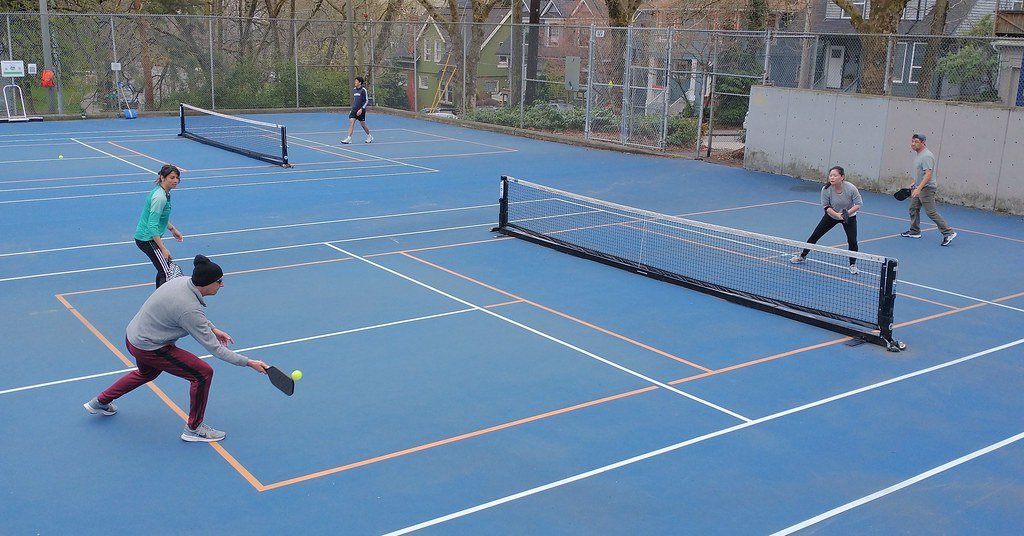
Playing Fair: Fair Calls and Dealing with Conflict on the Pickleball Court
When it comes to playing pickleball, maintaining fair calls and effectively dealing with conflict can greatly enhance the overall experience on the court. Here are a few key points to keep in mind:
- Communication is key: Clear communication between players is essential to avoid disputes and misunderstandings. Make sure to establish a system of calling the ball clearly and audibly. If there is confusion about a call, don’t hesitate to discuss it courteously with your partner or opponents to reach a resolution.
- Respect your opponent: Showing respect for your opponents is crucial in maintaining a fair and friendly atmosphere. Remember that everyone is there to enjoy the game, and treating your opponents with kindness and sportsmanship will go a long way in reducing conflicts and negative emotions.
- Know the rules: Familiarize yourself with the official rules of pickleball to ensure fair play. Understanding the boundaries, scoring system, and other key elements will help prevent disputes. If you’re uncertain about a rule, don’t hesitate to consult the rulebook or ask for clarification.
Ultimately, playing fair and handling conflicts in a respectful manner promotes a positive pickleball experience for all players involved. By following these principles, you can contribute to a welcoming and enjoyable environment on the court.
Taking Time to Socialize: The Importance of Friendliness and Inclusivity in Pickleball
When it comes to pickleball, it’s not just about the game; it’s also about the social aspect that makes it special. Taking the time to socialize is crucial in creating a welcoming and inclusive environment for all players. Friendliness and inclusivity go hand in hand, fostering a sense of belonging and camaraderie that enhances the overall pickleball experience.
In order to promote friendliness and inclusivity on the pickleball court, it’s important to keep a few key things in mind. First and foremost, always treat others with respect and kindness. No matter the skill level or experience, everyone deserves to feel valued and included in the pickleball community. Be open to meeting new people and forming connections, because you never know who you might meet and the friendships you could develop.
Additionally, being inclusive means creating an environment where everyone feels comfortable to participate. Encourage players of all ages, backgrounds, and abilities to join in the fun. Don’t be afraid to reach out and invite others to play or join a group. By fostering a spirit of friendliness and inclusivity, we can ensure that everyone has the opportunity to enjoy pickleball to the fullest.
To sum it up, taking the time to socialize and embracing friendliness and inclusivity are vital in creating a vibrant and thriving pickleball community. By being respectful, open, and inviting, we not only enhance our own experiences but also inspire others to do the same. Let’s make pickleball a welcoming space where everyone feels valued and empowered to enjoy the game they love.
Q&A
What are the most important unwritten rules to remember while playing pickleball?
The most important unwritten rules in pickleball include being respectful to other players, avoiding unnecessary noise and distractions during a game, and following proper court etiquette.
Are there any guidelines for serving the ball during a pickleball game?
Yes, there are guidelines for serving the ball in pickleball. The server must keep one foot behind the baseline, use an underhand motion, and serve diagonally to the opponent’s service court.
Can you explain the concept of “no-volley zone” in pickleball?
The “no-volley zone” is a designated area near the net where players are not allowed to hit the ball in the air without letting it bounce first. This rule avoids players from overpowering their opponents and promotes strategy and fair play.
What should players do when there is a disagreement or dispute during a pickleball match?
When a disagreement arises during a pickleball match, players should calmly and respectfully discuss the issue. If an agreement cannot be reached, they can involve a neutral third party or refer to the official rules to resolve the dispute.
Why is it important to avoid making excessive noise or talking loudly during a pickleball game?
Excessive noise or loud talking during a pickleball game can disrupt the concentration of players and create a distracting environment. It is important to maintain a quiet and focused atmosphere to ensure fair play and respect for all participants.
Should players call their own faults or rely on their opponents to do so?
It is generally expected that players should call their own faults in pickleball. However, if a player is unsure or if the opponent has a better view, it is acceptable to rely on the opponent’s judgment for making fault calls.
What should players do when they accidentally hit the ball outside the court boundaries?
When a player hits the ball outside the court boundaries, it is considered out of play. The player should immediately acknowledge the error and let the opponent know that the shot was out by either saying “out” or raising their hand.
Are players allowed to cross the centerline on the court during a pickleball game?
No, players are not allowed to cross the centerline on the court during a pickleball game, unless they are retrieving a ball that came from the opponent’s side. Crossing the centerline during play is considered a violation and can lead to a loss of points or loss of serve.
What should players do to ensure a smooth and enjoyable game for all?
To ensure a smooth and enjoyable game, players should arrive on time, maintain good sportsmanship, follow the rules and etiquette of the game, and communicate effectively with their partners and opponents. Respect, fairness, and a positive attitude go a long way in creating a great pickleball experience.
In Conclusion
As the final notes of the pickleball match echo across the court, it’s time to bid adieu to this captivating guide on the unwritten rules of pickleball court etiquette. We hope this enlightening journey has sparked within you a deeper understanding of the unspoken code that governs the thrilling world of pickleball.
In a sport that seamlessly blends agility, strategy, and, above all, camaraderie, it is these unwritten rules that serve as the invisible threads that knit players together. Like a grand symphony, these guidelines harmonize the dance between teams, fostering an atmosphere of respect, fairness, and sportsmanship.
As you skirted through the labyrinthine corridors of pickleball court etiquette, you discovered that this game extends far beyond the mere hitting of a ball with a paddle. It embodies an ethos that cherishes unity, empathy, and sportsmanship, bearing witness to the intrinsic value of the human connection.
Whether you are a seasoned pickleball aficionado or a curious newcomer, let these unspoken rules serve as your guiding compass on your journey towards becoming the epitome of pickleball elegance. Remember the importance of maintaining a courteous demeanor, recognizing the sacred rhythm of rotation, and embracing the unwritten reverence for the pickleball itself.
Let each rally across the net, each moment of fair play, and each gracious word exchanged echo the legacy of countless pickleball champions who have embraced these unwritten codes. Through their collective contribution, they have woven a tapestry of unwavering respect that transcends the dimensions of the pickleball court.
Beyond its physical boundaries, this game has the power to uplift communities, dissolve boundaries, and bring together individuals from all walks of life. So, as you embark upon your next pickleball adventure, it is our sincerest hope that these unspoken rules permeate your every move, seeping into the very fabric of your pickleball soul.
With this newfound awareness, go forth, spread the spirit of pickleball court etiquette, and revel in the profound joy that awaits. By honing your skills not only as a player but also as a guardian of this unwritten creed, you take your place among the stewards of the sacred pickleball universe.
As the sun dips below the horizon, casting a warm glow upon your court, remember these unspoken rules that guide the dance of pickleball. And when the next serve sends the ball soaring through the air, remember that you are not merely a player but a custodian of this elegant tradition.
So, paddle in hand, heart aflame with camaraderie, let the unwritten rules of pickleball court etiquette guide your every step. For it is through our collective adherence to these invisible boundaries that we nurture an enduring legacy of unity, sportsmanship, and the triumph of the human spirit.
As an affiliate, my content may feature links to products I personally use and recommend. By taking action, like subscribing or making a purchase, you’ll be supporting my work and fueling my taco cravings at the same time. Win-win, right?
Want to read more? Check out our Affiliate Disclosure page.

